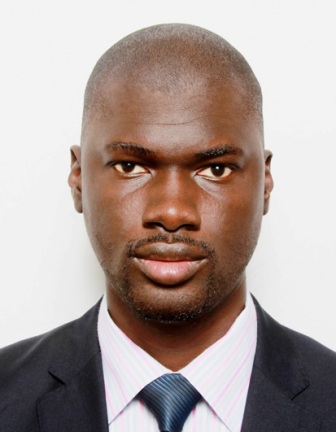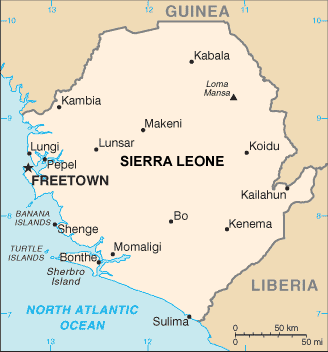Down Memory Lane with Charlatans
I remember some of the functions of the British Council in my school days (1949-1951) at the famous Prince of Wales School in Kingtom. The buildings were wooden structures on pillars at Tower Hill, not far from the site of the present Paramount Hotel. In addition to being a reading and lending library it was a centre of literary and social activities which always attracted many people. (Photo: Dr. Sama Banya)
There were the Madrigal singers under the direction of Dr. F H Hilliard of Fourah Bay College, then the Dramatic Society with dramatist personae like William Conton, the arrogant, irrepressible but annoyingly efficient Belgian detective Hercule Poirot with Jonathan Hyde as his Captain Wellington. Who could forget the outstanding performance of Melvin Stuart as the elegant but scheming Mrs, Lennox (spelt with a ‘double N’she would insist), the hostess of Liberty Hall or Florence Edmonson as the ever nervous and frightened looking maid. There were others like Thomas Decker, Murietta Metzger, later Mrs. Olu Williams and a host of others.
The centre was also the venue for a fortnightly documentary film show that we dubbed the Hill Side cinema, under the direction of Freddie Jones, later Secretary of the Bank of Sierra Leone. His never failing concluding statement still rings in my ears, “That, ladies and gentlemen is the end of our show tonight.” Additional attractions of the film show was the regular presence of the Annie Walsh boarders under the watchful eyes of Josephine Findlay, later Mrs. Aaron Cole.
The British Council often hosted public lectures with personnel from Britain addressing a variety of subjects. I recall a talk on local government by a councilor from Lambeth Council in London. I had asked what the criterion was for working for a local council and followed it up with a supplementary question. I was later to join the VIPs at a reception; I was only a sixth former.
I had been included in the Sierra Leone squad in our encounter in the inter-colonial cricket match against The Gambia and once more I was invited to the ball which followed at the British Council. My Principal J V Taylor felt so proud that he advised me to turn up in my POW school colours. I went all right but as for engaging those well dressed ladies for any dance was out of the question. I simply watched the gentlemen in their dinner suits or tuxedos whirling round the dance floor with their well dressed ladies. I was in Upper six.
The Festival of Britain was a well publicised event even in far away Sierra Leone. However over the BBC the then Home Secretary Herbert Morrison in a broadcast statement had among other things, said, “To WE in Britain,” instead of “To us in Britain” I am not certain whether that had prompted the British Council Representative (that is how they were addressed in those days) C H Miller who later delivered a lecture at the British Council on “English and how she is spoke.” He made mention of that grammatical error as well as another common one which usually says for example, “Dr. Banya and myself,” instead of “Dr. Banya and I” went to the house or did so and so. Ah, but English is NOT the mother tongue for most of us. The likes of us were introduced to it after being taught in the vernacular for a while.
In addition to wide exposure and reading I have earned my modest proficiency in the language as a result of the efforts of my various English teachers. There was S A Junusa in Kailahun, Amadu Koker and G E O Davies in the Bo School and A T Thomas in the Prince Of Wales. Education is a continuing process; however some people try much too hard to give the impression that they are perfect or that they have a proper grasp of what they wish to say. A fellow voluntarily (here teacher Y D would have added, “and of his own freewill”) writes:- March 5 – SLPP convention; March 5 – Trouble, are the Police ready?” When he is rightly chastised for that he shields under the falsehood that he was referring to all political parties. Whom does he think he is fooling, or is it that he didn’t fully understand what he wrote? And what is forbidden about such sentences as “I was wrong, I am sorry?” instead of making lame excuses?
English may not be our mother tongue and therefore we ought to limit ourselves to that which is not misconstrued.
Stay with Sierra Express Media, for your trusted place in news!
© 2011, https:. All rights reserved.






